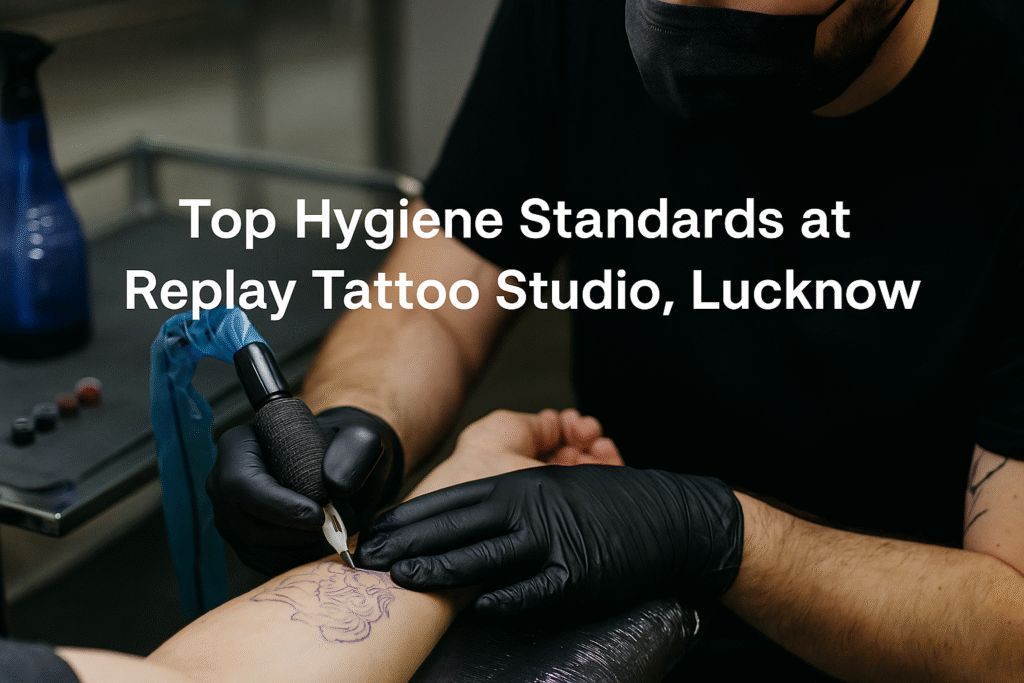Tattoos have long been a canvas for self-expression, telling stories of love, loss, culture, and identity. As more people choose to adorn their bodies with ink, the question arises: tattoo is good for health or not? While some view tattoos as mere art forms, others ponder their implications on physical and mental well-being. This exploration delves deep into the fascinating world of tattoos—unpacking their history, cultural significance, and potential health effects. Prepare to discover whether getting that dream tattoo could be beneficial or if it carries hidden risks you need to consider.

tattoo is good for health or not
Tattoos can spark a range of emotions and reactions. They often symbolize personal journeys or milestones in life. This deep connection may foster a sense of belonging and self-acceptance, which can be beneficial for mental health.
On the flip side, there are risks involved with tattooing. Skin infections, allergic reactions, and complications during healing can occur if proper care isn’t taken. Understanding these risks is crucial before making a decision.
Interestingly, some studies suggest that getting inked might even boost your immune response. The body’s reaction to the trauma of tattooing could lead to increased resilience against illness.
However, not everyone experiences positive feelings post-tattoo. For some individuals, regret or anxiety about their choices may arise later on. So while tattoos hold potential benefits for many people’s well-being, they are not universally advantageous when it comes to health matters.
Introduction to Tattoos
Tattoos have fascinated humans for centuries. They serve as an expression of art, culture, and personal identity. From tribal markings to intricate designs, tattoos tell unique stories on the canvas of our skin.
The practice dates back thousands of years across various civilizations. Ancient Egyptians adorned their bodies with ink to signify status or protection in the afterlife. In Polynesian cultures, tattoos symbolize bravery and belonging.
Today, tattoos continue to evolve as more people embrace this form of self-expression. Each design often carries deep meaning—whether it’s a tribute to loved ones or a reflection of personal beliefs.
With growing acceptance in society, getting tattooed has become mainstream. For many, it is not just about aesthetics but also about reclaiming one’s narrative through body art. The journey into tattoo culture opens doors to understanding oneself and connecting with others who share similar experiences.
The History and Cultural Significance of Tattoos
Tattoos have a rich history, deeply woven into the fabric of human culture. They date back thousands of years, with evidence found in ancient Egypt and Polynesia. These markings often signified status, identity, or spiritual beliefs.
In many indigenous cultures, tattoos served as rites of passage. For instance, the Maori people used intricate designs to convey lineage and heritage. Each tattoo told a story that connected individuals to their ancestors.
The symbolism behind tattoos varies across regions and eras. In Japan, for example, elaborate ink work can represent courage and resilience. Meanwhile, Western societies have embraced tattoos as expressions of personal freedom and rebellion.
Today’s tattoo culture reflects this diverse history while continuing to evolve. Modern techniques allow for greater creativity but also raise questions about cultural appropriation and respect for traditional meanings.
The Risks and Benefits of Getting a Tattoo
Getting a tattoo can be an exciting decision, but it comes with both risks and benefits. On the positive side, tattoos are often seen as forms of self-expression. They allow individuals to showcase their personality or commemorate significant life events.
However, there are health risks involved. Infections from unsterilized needles or improper aftercare can occur. Allergic reactions to ink may surprise some people too.
Moreover, the process is not always painless. Some areas of the body are more sensitive than others, which can lead to discomfort during application.
On the flip side, many report feelings of empowerment after getting a tattoo. It can boost confidence and serve as a personal milestone in one’s journey through life.
Understanding these aspects is vital for anyone considering this permanent choice on their skin.
How Tattoos Affect Your Health
Tattoos can have various effects on your health, both positive and negative. The process of getting inked involves puncturing the skin, which may lead to mild pain, swelling, or redness. For most people, these symptoms fade quickly.
However, tattoos can also trigger allergic reactions in some individuals. Certain inks contain allergens that might cause irritation or rash long after the tattoo is applied.
On a more positive note, many find that their tattoos boost self-esteem and body image. This psychological uplift can contribute to overall mental wellness.
Infection is another concern; if not done under sterile conditions, there’s a risk of bacterial infections affecting healing processes. Therefore, choosing a reputable artist and studio is vital for minimizing risks.
The visibility of tattoos might impact social interactions too—some workplaces still hold biases against visible ink. Understanding these dynamics helps navigate personal choices better.
Psychological Effects of Tattoos
Tattoos can have profound psychological effects on individuals. For many, getting inked is a form of self-expression. It allows individuals to showcase their beliefs, experiences, or artistic flair. This expression often leads to increased self-esteem and confidence.
On the flip side, some may experience regret after getting a tattoo. The permanence of body art can lead to anxiety or dissatisfaction if it no longer resonates with one’s identity.
Additionally, tattoos can serve as reminders of significant life events or milestones. They can be therapeutic for those who have overcome trauma by transforming pain into something beautiful.
Community and belonging also play roles in the psychology surrounding tattoos. Many find camaraderie among fellow tattoo enthusiasts, fostering connections built on shared interests and experiences.
Understanding these psychological dimensions helps illuminate how tattoos impact mental health beyond skin deep.
Safety Precautions for Getting a Tattoo
When considering a tattoo, prioritizing safety is essential. Start by researching reputable tattoo studios. Look for licensed professionals with strong hygiene practices.
Before your appointment, ensure the artist uses fresh needles and sterile equipment. This minimizes the risk of infections or complications.
Communicate openly about any allergies or medical conditions that could affect healing. A responsible artist will ask questions to understand your health history better.
After getting inked, follow aftercare instructions diligently. Keep the area clean and moisturized to prevent irritation and promote healing.
Avoid exposure to sunlight while it heals. This protects both your skin and the integrity of your new design.
Trust your instincts. If something feels off during the process, don’t hesitate to speak up or reconsider your choice of studio. Your well-being should always come first in this decision-making journey.
Conclusion: Is Getting a Tattoo Good for Your Health?
When considering whether a tattoo is good for health or not, the answer isn’t black and white. Tattoos carry both risks and benefits that can impact an individual’s well-being in various ways.
On one hand, tattoos may serve as a form of self-expression, allowing individuals to connect with their identities. This personal meaning can lead to improved mental health by boosting confidence and promoting body positivity. The act of getting inked can also create a sense of community among those who share similar interests or experiences.
However, it’s crucial to acknowledge the potential health risks associated with tattooing. These include allergic reactions, infections from unsterile equipment, and complications related to certain medical conditions. Ensuring proper safety measures are followed during the tattoo process is essential in minimizing these risks.
Each person’s experience will vary based on individual circumstances—both physical and psychological. Weighing the pros against the cons can help you make an informed decision about whether getting a tattoo aligns with your overall health goals and values.



